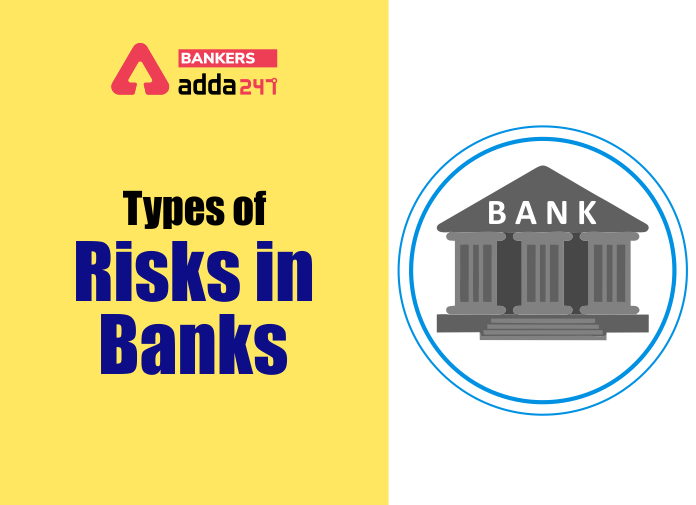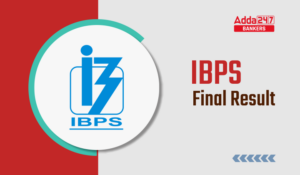Table of Contents
Types of Risks in Banks is a very important topic from exam point of view because the questions are often asked in mains examination as well as questions asked in interview are from this topic. This topic is very important from upcoming exam point of view like RBI Grade B, RBI Assistant, SEBI, NABARD, SIDBI, SBI PO, IBPS PO, IBPS Clerk, etc. In this article, we will try to cover every possible aspect of this topic so that you can ace your banking exams like a pro. We are sure that after reading this article you will be able to answer majority of the questions based on this topic.
| Best Approach Towards Solving Error Detection In Banking Exam |
Define Risks?
Risk is define as the occurence of an unexpceted loss due to an event in the economy or in the financial markets. There are various types of risks a bank may face which needs to be managed carefully with proper planning. One of the reason due to which risks can also arise from staff oversight or mala fide intention, which basically causes erosion in the values of assets thus leading to a reduction the bank’s intrinsic value.
| SBI PO 2020 | SBI SO 2020 | SBI Clerk 2020 |
Types of Risks in Banks
Risks in the Banking sector can be categorised into two types namely :Systematic Risks and Unsystematic Risks.
Systematic Risks: It is define as the risk inherent to the entire market or a market segment, and it can affect a large number of assets. It is also known as Undiversifiable Risk or Volatility and market risk. It basically affects the overall market and not just a stock or industry in particular thus we can neither predict this type of risk nor we can completly avoid it. For example- interest rate changes, inflation, recessions and wars.
Unsystematic Risks: It is define as the risk that affects a very small number of assets. It is also known as Nonsystematic Risk, Specific Risk, Diversifiable Risk and Residual Risk. It refers to the uncertainty inherent to a company or industry investment in particular. For example- change in management, a product recall, a regulatory change that could drive down company sales and a new competitor in the marketplace with the potential to take away market share from a company in which you’ve invested. With proper planing it is possible to avoid unsystematic risks.
Previous Year Memory Based Paper
- IBPS Clerk Mains 2020 -General Awareness Questions Asked In The Exam
- SBI Clerk Mains 2019 GA Questions Asked
- IBPS Clerk Mains GA Questions 2019
- GA Questions asked in SBI PO Main 2019 Exam
- IBPS RRB PO
Other Types Of Risks
Credit of Default Risk: We can define it as the risk in which a borrower is unable to pay the interest or principal on its debt obligations. As per the Basel Committee on Banking Supervision, Credit risk is defines as the potential that a bank borrower, or counter-party, will fail to meet its payment obligations regarding the terms agreed with the bank.
Market Risk: As per The Basel Committee on Banking Supervision, Market risks can be define as a market risk of losses in on-balance or off-balance sheet positions that arise from movement in market prices. It is the most prominent for banks present in investment banking.
Liquidity Risk: It can be defined as the risk in which a bank is not being able to finance its day to day operations. The affects of this risks are severe like : inability to manage this risk could lead downfall of the bond pricing and ratings of the bank in the money market.
Country Risk: Country risk can be define as the risk in which a country won’t be able to honour its financial commitments. It is a condition in which a country defaults on its obligations and it can harm the performance of all other financial instruments in that country as well as other countries it has relations with. Country risk has implications over to stocks, bonds, mutual funds, options and futures that are issued within a particular country.
Operational Risk: As per the “The Basel Committee on Banking Supervision” this risk is define as a operational risk of loss resulting from inadequate or failed internal processes, people, and systems or external events.
There are three main reasons of this risk:
- Human Intervention & Error
- Failure of the IT/internal software & systems.
- Failure of Internal Processes to transmit data & information accurately
Visit Achieversadda.com and participate in discussions with other aspirants and achievers. Get answers to your queries and connect with others on Achieversadda.com



 IBPS Final Result 2025 Coming Out Tomorr...
IBPS Final Result 2025 Coming Out Tomorr...
 Simple Tips to Avoid Common Mistakes In ...
Simple Tips to Avoid Common Mistakes In ...
 Important Topics & Shortcuts for IDB...
Important Topics & Shortcuts for IDB...




